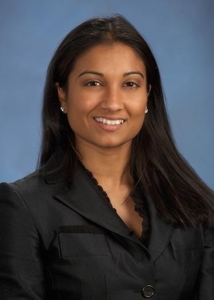 Women in the work force need to make an effort not to be so hard on themselves, says Jo Natauri, a partner at Goldman Sachs. “You have to accept that you won’t be functioning at 100% in all aspects of your life all the time. Sometimes you are a 100% mother or wife, and sometimes you’re 100% at your job, but often it will be somewhere in between. You have to be ok with pushing and pulling levers in your life, rather than going full bore on all of them at the same time. Frankly it’s a balance you have to acknowledge irrespective of your gender.”
Women in the work force need to make an effort not to be so hard on themselves, says Jo Natauri, a partner at Goldman Sachs. “You have to accept that you won’t be functioning at 100% in all aspects of your life all the time. Sometimes you are a 100% mother or wife, and sometimes you’re 100% at your job, but often it will be somewhere in between. You have to be ok with pushing and pulling levers in your life, rather than going full bore on all of them at the same time. Frankly it’s a balance you have to acknowledge irrespective of your gender.”
Intersection of Healthcare and Finance
During her time as an undergrad at the University of Virginia, Natauri’s interests shifted from pursuing a career practicing medicine to one in finance. Working with a quadriplegic while in school, she was struck by the many difficulties he was having obtaining adequate medical care, as well as the financial means to cover it. “Seeing an accomplished individual still having these issues changed my course. I realized I wanted to be involved in healthcare in a meaningful way on the business side.”
Because of previous coursework, she had the flexibility to earn a degree in both economics and biology, and went into investment banking. Her plan when she started in 1998 was to spend time learning and understanding the business side and then eventually transition into policy, but instead she has spent her entire career in various roles in the healthcare business. She started at Goldman in 2006 as a vice president, and became a managing director in 2008 and partner in 2012.
Natauri is excited by her work on transactions in the sector with cutting-edge companies that are focused on helping people and curing diseases. “The altruistic component to the finance I’m doing is really important to me,” she says, “And, due to the profound changes in healthcare, the industry will continue to offer new opportunities.”
Passion = Success
Though Natauri has always felt a passion for the finance industry, she suggests young women who might be considering a career in banking recognize the demands the job may have on personal time. She says though work in investment banking can be all consuming, she likes working with smart people who want to make decisions quickly and produce the best work for clients.
She shares a passion for her work with the other women with whom she interacts in Goldman’s robust mentoring groups. “I was pleasantly surprised when I came here to see how important mentoring is, both formally and informally.”
She finds mentoring particularly helpful in addressing one of the main challenges she sees for women in the industry — the limited number of female role models at the higher levels. “If you haven’t seen a lot of women in senior positions, which I didn’t, you might feel pressured to mimic the few examples you do see instead of forging your own path, which can be challenging if that doesn’t match your personality,” Natauri said. “You have to figure out what success looks like for you, without having the benefit of a large number of role models.”
Natauri knows that success doesn’t come immediately, which also can be challenging when first starting your career. “When you’re young, you are promptly rewarded for good grades and hard work, and then you find when you enter the corporate world that it’s not as linear,” she says. “You have to have patience that your trajectory will take off.”
A Heart for Kids
Natauri spends much of her time away from work with her husband and their three children, ages four, two and one. She was also formerly on the board of a nonprofit organization called Everybody Wins, which she describes as a cross between literacy advocacy and Big Brothers/Big Sisters. The organization brings professionals to low-income schools to mentor and read to kids. “I’m a practical person at heart so I really appreciated its mission of getting busy people involved in an impactful way with the limited time they have available.”
